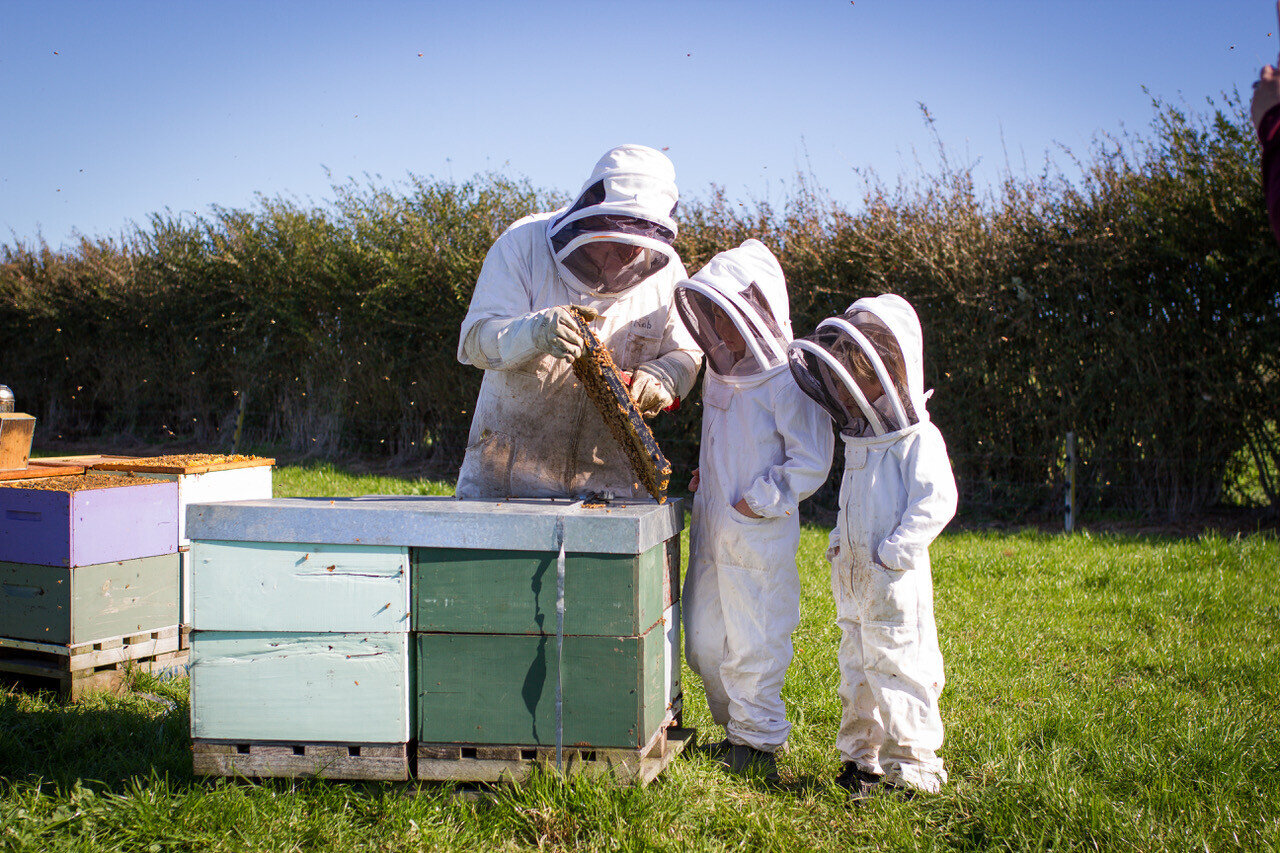Learn the importance of honey bees
and the health benefits of honey

The Queen
honey bee
The Queen bee lays the eggs and spends the majority of her life in the hive.

Honey bee
eggs
The queen will normally only mate once and then can lay up to 2500 eggs per day to help the
50,000-60,000 bees in our hives as they
collect honey!

Making
honey
Honey bees produce more than they need. Due to their hoarding instincts, bees make honey non-stop during the times which they are active. This leaves a huge surplus for beekeepers to take without causing any endangerment to the bees.

Bees are amazing insects
Bees flap their wings about 200 times per second and one of our lovely 500g jars of honey represents around 2 million flowers visited and the equivalent of flying 1½ times around the world.
Health Benefits of Honey
Honey is one of the only natural foods that does not go off, and in actual fact Honey is the only food that contains all substances necessary to sustain life!
Honey has long been a remedy to help soothe and suppress coughs. During recent studies it was found that Honey consistently scored best for reducing cough frequency and severity and improving nighttime sleep over other treatments.
In ancient times Honey was used as both food and medicine. It has been observed that Honeys anti-inflammatory and anti-bacterial properties can promote healing of wounds and decreased inflammatory response in burns patients when applied topically.
Scientists believe that Honey is rich in phenolic acids and flavonoids, which exhibit a wide range of biological effects and act as natural antioxidants. Antioxidants are substances that may protect your cells against free radicals, which can play a role in heart disease, cancer and other diseases. Honey has been part of many studies and the research into the health benefits of honey is on-going.
The importance of honey bees and their hives
Honey bees are the world’s most important pollinator of food crops.
Meaning these little insects are largely responsible for our food supply. This is why we, as Beekeepers take our job extremely seriously to ensure the health of our bees and hives. Our Honey is sustainably gathered always making sure there is minimal to no disturbance to our bees and the surroundings they are in.
New Zealand’s unique range of native plants including the Manuka tree enables New Zealand to produces the finest Honey in the world.
The Queen Bee
The Queen Bee is mated by the Drones, the only boys in the hive, the rest are female.
The Queen Bee normally only mates once and requires a nice fine day to do so as they mate in flight.
Mating is the only time they leave the hive unless they swarm looking for a new home.
Types of bees in the hive

Queen Bee

Drone Bee





